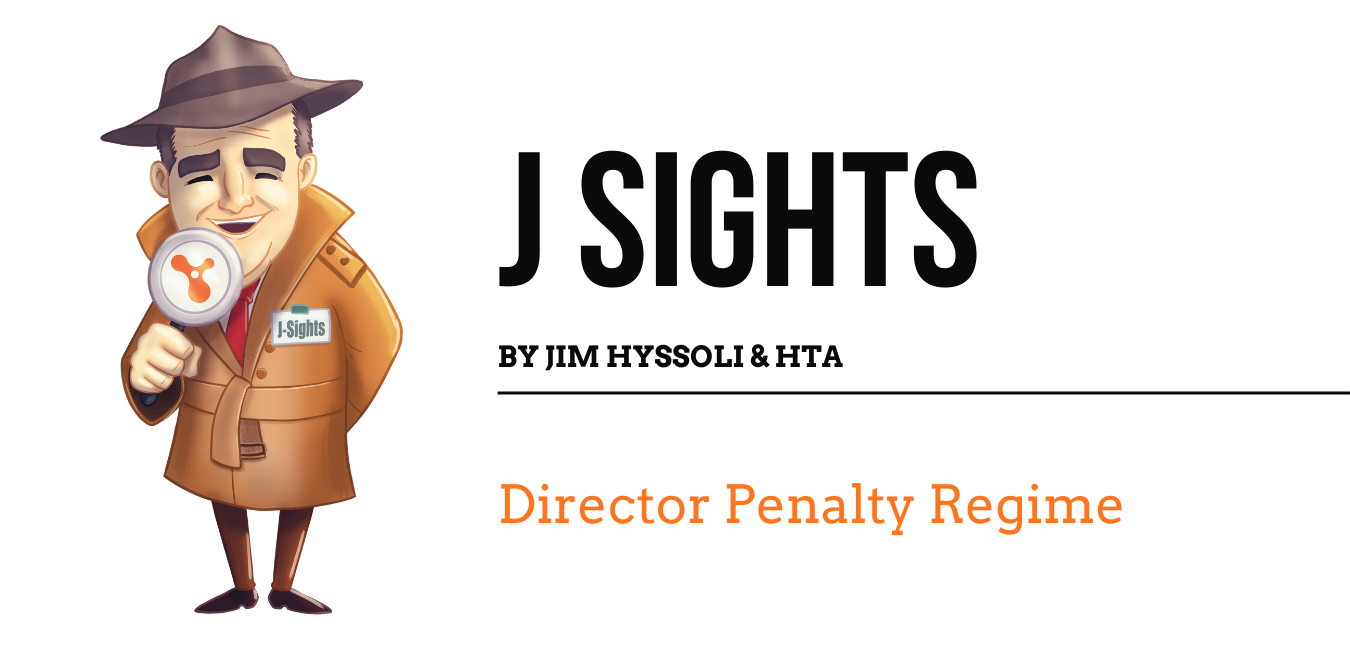
An update has been provided to company directors as regards to personal liability for GST.
Last year the Federal Government re-introduced legislation to parliament on the 5th of July 2019, which has now been legislated for the issuance of Director Penalty Notice (DPN) for Goods and Services Tax (GST) from 1st of April 2020.
The new legislation has been applied similar to the existing Pay As You Go (PAYG) and Superannuation Guarantee Charge (SGC) DPN regime.
HTA has monitored the legislation closely and with its passing, the change will likely have wide reaching implications as businesses generally have a much greater exposure to GST than PAYG or SGC.
The legislation was primarily introduced under a package of reforms to deal with illegal phoenix arrangements.
What are Illegal Phoenix Operations?
Illegal phoenix activity occurs when assets of a company are stripped and transferred to another entity that is controlled by the same director, for little or no consideration. The main purpose of these transactions is to defeat the interests of the creditors of the first company, and are often facilitated by unscrupulous pre-insolvency advisors, accountants, lawyers and liquidators.
As the ATO is often a significant creditor in most liquidations, it is not uncommon for it to be owed large amounts in unpaid GST, PAYG and Superannuation. The government is also concerned about unpaid superannuation, which is being described in the media as “wage theft”.
While the DPN regime is meant to primarily deal with illegal phoenix activity, unpaid taxes and superannuation, many legitimate businesses that are having solvency issues will also be caught up in this regime.
Where a company is unable to meet its ongoing tax obligations, the ATO can issue a DPN against the directors of a company and impose a penalty that is equal to the amount of the company’s unpaid liability. The DPNs are issued to the directors’ registered address in ASIC’s database, which is usually their home address.
What types of DPNs exist?
There are two kinds of DPNs:
- Non-lockdown DPNs
- Lockdown DPNs
Please be aware that DPNs issued by type will depend on when the company’s BAS or Superannuation Guarantee Charge (SGC) Statement is lodged with the ATO.
Non-lockdown DPNs
If a company lodges its BAS within 3 months of the original due date, and reports the unpaid amounts for GST, PAYG, luxury car tax and wine equalisation tax to the ATO, the ATO can issue a non-lockdown DPN against the directors. The directors can avoid personal liability for the penalty if they:
- Pay the debt; or
- Place the company into liquidation; or
- Place the company into voluntary administration
Where there are outstanding superannuation obligations, the company must report the SCG obligation by the due date of the SGC Statement. If that is done, then the ATO can issue a non-lockdown DPN against the directors.
The DPN penalty can only be remitted or removed if the director takes one of the above options within 21 days from the date of the DPN. If the director fails to take any of those options within that time frame, then the director will be personally liable for the penalty.
Lockdown DPNs
There are times where companies do not lodge their BAS’s and SGC Statements on time. If these BAS’s are not lodged within 3 months from their original due dates, or in the case of outstanding superannuation where SGC Statements are not lodged by the due dates, then the ATO can issue a lockdown DPN against the directors.
Under this scenario, the directors’ personal liability can only be prevented if the penalty is paid within 21 days of the DPN.
The lockdown DPN does not allow the directors to avoid personal liability by placing the company into liquidation or voluntary administration. A lockdown DPN can also be issued after a company goes into liquidation or voluntary administration.
How is the DPN calculated if the company does not lodge their BAS’s and SGC Statements on time?
The ATO can make reasonable estimates of the unpaid and overdue amounts for unpaid taxes and superannuation even if a company does not lodge their BAS or SGC Statement. The DPN regime will apply to the estimated liabilities.
Our Recommendation
We at HTA will ensure that:
- Clients’ are supported to ensure their businesses lodge their BAS’s and SGC statements on time. If this occurs, clients can avoid personal liability if a non-lockdown DPN is issued, by appointing a liquidator or administrator on time.
- Support our clients to ensure that the ASIC address for all directors are correct. DPN’s issued to a former address can be considered valid.



